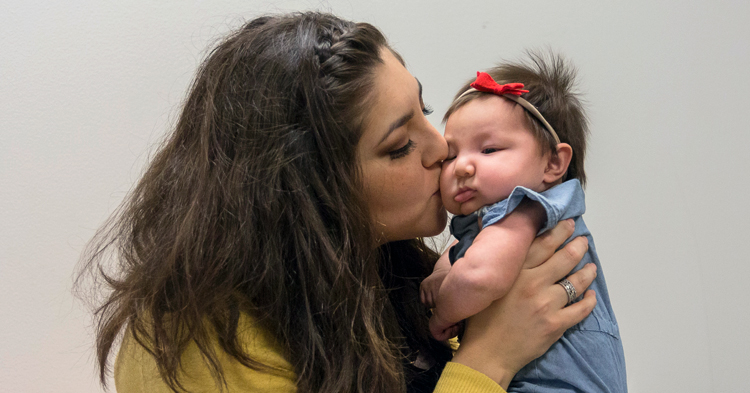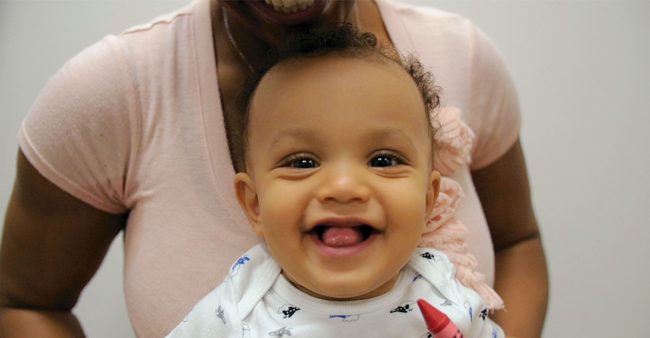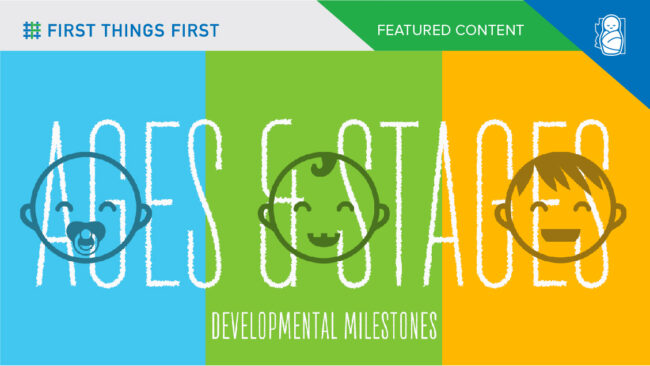You will spend these first months getting to know your new baby. You will get into a routine together, and you will start to learn the ways your baby tells you what they need. You are your new baby’s whole world. You will give them all the things they need, including love, attention and a feeling of safety.

Your Baby’s Brain
Right from birth, your baby is having new experiences with all of their senses. These experiences create new connections in their brain, and you are the source of most of these experiences. When you play with, sing and talk to your baby, you help their brain to develop, and you make your bond with your baby stronger.

Giving Your Baby Loving Care
You can show love to your baby with your care and attention. Babies feel safe and secure when they can feel, hear or see you close to them.
- Hug, cuddle and kiss your baby.
- Talk in a soothing voice or sing to them. Read On Arizona has some ideas on how to talk to your baby on its Smart Talk page.
- Respond to your baby’s cries right away. Babies don’t become spoiled when you take care of their needs or give them attention. In fact, babies often cry less when you respond to them quickly.

Ages and Stages
As your baby grows, you will notice new things that they can do. All babies are different, but there are age ranges when babies usually do certain things.
From birth to 3 months
From birth to 3 months, your baby may begin to:
- Try to look at you.
- Hold their head up during supervised tummy time.
- Open and close their hands, and bring their hands to their mouth.
- Start to smile at people.
From 3 to 6 months
From 3 to 6 months, they may:
- Make babbling sounds like “ga”, “ooh” and “ba.”
- Reach for a toy with their hand.
- Let you know if they are happy or sad.
If you have questions about how your baby is developing, talk to their doctor.
Helping Your Baby Sleep
Newborn babies usually sleep for about two hours at a time. As your baby gets older, they will sleep longer. When your baby wakes up at night, change and feed them, then put them back in their crib. Keep the lights dim. You can soothe your baby by talking quietly to them. You also can start a bedtime routine that helps your baby know it’s nighttime. This can be a bath, a story and a last feeding.
In the daytime, you can encourage your baby to be alert when they are awake. Daytime is the best time to sing and play with them. When you see signs that your baby is sleepy, like yawning or fussing, put them in their crib. This helps them learn to fall asleep on their own.
Research shows that physical activity helps babies get more sleep.

About Tummy Time
Tummy time is when you place your baby on their stomach while they are awake and you are watching them. This helps babies strengthen their neck and shoulder muscles. You can start tummy time with your baby right away, for three to five minutes at a time. Try to give your baby some tummy time a few times a day. You can wave a toy or talk or sing to them to make tummy time interesting.
Some babies get fussy during tummy time, and that can cause their parents to give up on it. To help make tummy time easier and help your baby grow and develop in their first year, try these expert tummy time tips.

More Ways to Find Help
CDC Milestone Tracker — A mobile app to track your baby’s development.
The First Things First Parent Kit was developed in partnership with Health Research for Action/UC Berkeley. © 2023 The Regents of the University of California. Additional video, graphic and other content © 2023 First Things First. All rights reserved.




